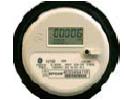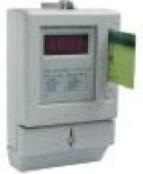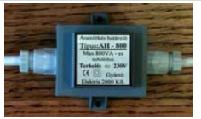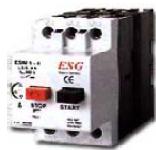Metering and Billing Systems
From energypedia
Revision as of 09:48, 5 August 2009 by ***** (***** | *****)
Standard kWh meter
Advantages
- fair and transparent
- reading less frequent than collection; if customers go to office, there is cost reduction
- amount and time related tariffs possible (demand steering)
Disadvantages
- high costs (metering device & reading)
- dis- and re-connection in case of late payment
- complicated reading and billing
Pre-paid system with coins or cards
Advantages
- fair and transparent
- no meter reading
- no overdue costs
- no costs for dis- and re-connection
- close to “ability to pay”-variations
- coins less expensive than cards
Disadvantages
- relatively high cost for metering device
- less forgery proof
- costs for re-collection of coins and selling system for coins/cards
Current limiter
Advantages
- simultaneously protecting against overcurrent (actual purpose)
- delimiting peak demand
- no meter reading required; flat rates according to max. amperage
Disadvantages
- danger of fraud and theft of switch fuses
- additional costs for replacement of cut out fuses
- time of usage not considered; less fair
Flat rate
Advantages
- very cheap (no metering or delimiting device)
- especially in rural areas of Indonesia quite common and accepted
- can be combined with number of appliances or installed wattage (social control)
Disadvantages
- provokes waste of electricity, no incentive for saving
- no load control / demand steering possible (peaks)
- less fair
Experience form Nepal : Innovative Metering
⇒ Back to Solar Section
























